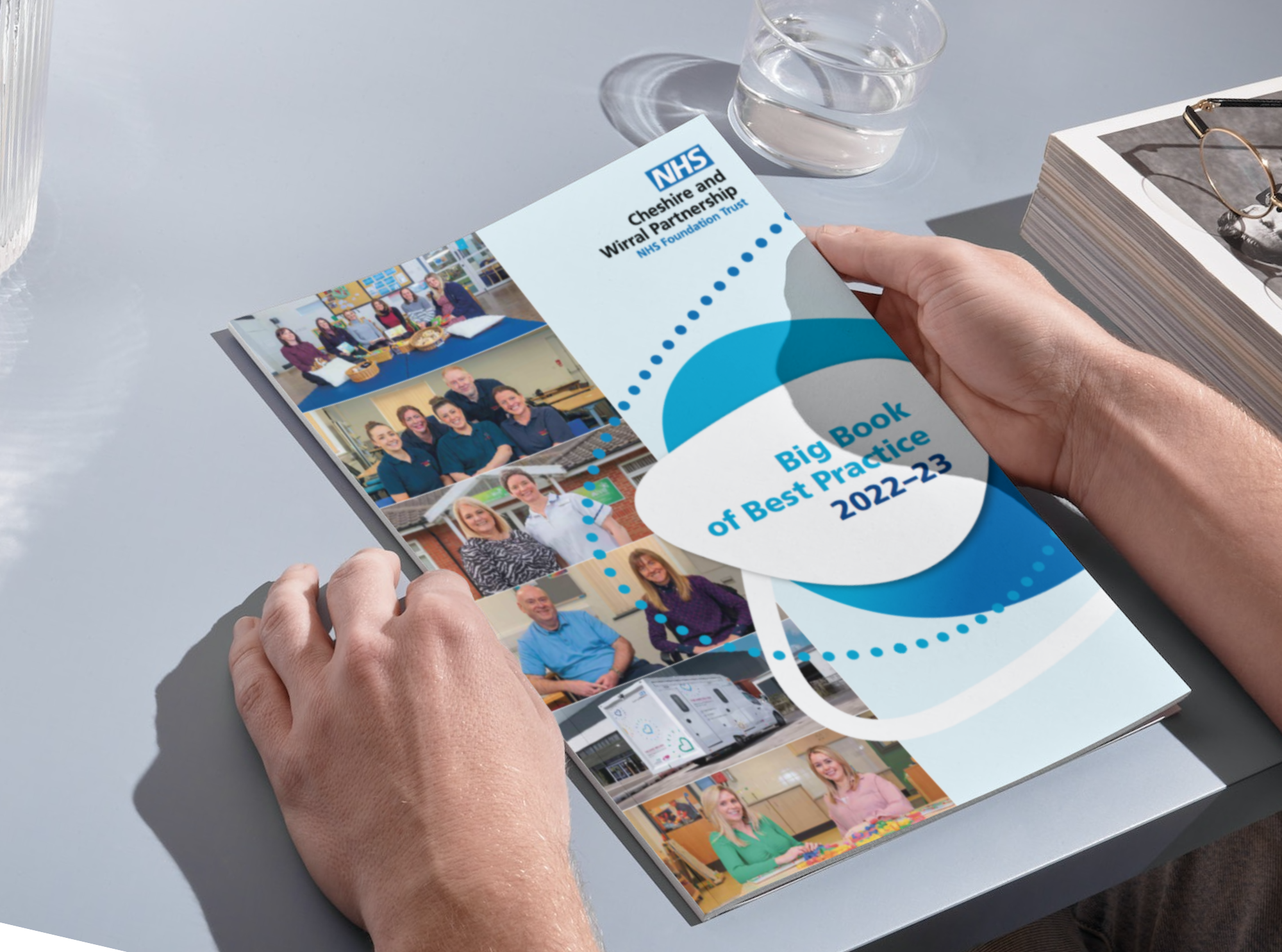Below you can view all the entries that made it into the Big Book of Best Practice 2022-23 from the children, young people and families care group.
Contact details for each project can be found within the entries below. For more information about the Big Book of Best Practice, email cwp.
Team: CNEST development team (Dr Fiona Pender, Dr Lesley Doyle, Faye Bohen, Clare Cooper and Prof Sujeet Jaydeokar)
Contact: cwp.
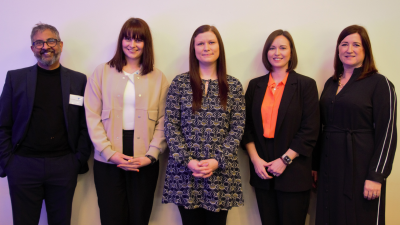
What did we want to achieve?
The Complex Needs Escalation and Support Tool (CNEST) was developed to provide a consistent, evidence-based risk stratification tool to provide early identification of young people with moderate to severe mental health difficulties, at risk of admission to a tier 4 CAMHS inpatient unit, and to facilitate a coordinated multi-agency response.
What we did
The CNEST was developed through several stages:
- Step one: Identification of factors that may increase risk of admission to tier 4 inpatient CAMHS from conducting a literature review, a review of 12 months of admission data from Ancora House and focus groups with a range of community and inpatient staff.
- Step two: Delphi groups with children and young people mental health services (CYPMHS) professionals, focusing on the tool factors and the weightings of these.
- Step three: Use of questionnaires to gather the views and opinions of people with lived experience, including young people, parents and carers.
- Step four: A clinical utility pilot within CYPMHS. The findings were used to refine the tool and the guidance document.
- Step five A wider clinical utility pilot across Cheshire and Merseyside, with additional further refinements.
The team also:
- Developed a CNEST webpage (www.
cwp.nhs.uk/ ).cnest - Delivered face-to-face and online training to 192 practitioners across all Cheshire and Merseyside NHS trusts.
Results
- CNEST is now being used across Cheshire and Merseyside to identify and meet unmet needs and prioritise discussion at gateway meetings.
- As part of the wider new care model work, there has been a reduction in young people admitted to tier 4 CAMHS.
- Provides a single tool that can be used for all children and young people, including anyone with a confirmed or suspected learning disability or autism diagnosis.
- CNEST was also shortlisted at the North West Coast Research and Innovation Awards 2023 in the ‘Ruth Young Award for Research Implementation’ category
Next steps
- There has been national and international interest in CNEST.
- Further research is planned to evaluate the inter-rater reliability and the validity of the tool.
- The development of the tool will be written and submitted for publication in a peer reviewed journal.
Team: Wirral Mental Health Support Team
Contact: rachel.
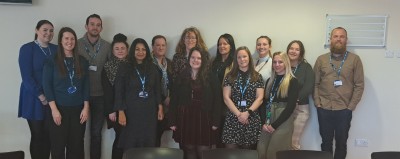
What did we want to achieve?
The implementation of Mental Health Support Teams (MHST) in schools in Wirral, aimed to improve provision of early support for children and young people (CYP) and improve outcomes following intervention. Wirral MHST utilised existing effective relationships with schools to meet the needs of CYP with mild to moderate mental health needs. They also worked with mental health leads in schools to develop a whole-school approach. Wirral MHST works closely with partner agencies to ensure effective pathways, the maximising of outcomes and to align all ‘coping’ and ‘getting help’ provision, in accordance with the ‘Thrive’ framework.
What we did
Initially, Wirral MHST was designed to be co-located in the 53 primary schools in the top 40% most deprived areas. This addressed inequalities and recognised existing demand for mental health support in these areas. The consultation model was established to discuss CYP with mild to moderate mental health needs, many of whom would otherwise likely not have access to mental health services. A range of individual and group evidence-based interventions were offered to children face-to-face, online and by phone. Outcome measures and goal-based outcomes available from completed interventions were statistically analysed to assess whether there was clinical change following intervention.
Results
Wirral MHST has improved the provision of early mental health support for children and has since expanded to offer a service to all 96 primary schools in the area.
Key aims of the service were met:
- Over 50% of referrals were for children with anxiety.
- 80% of children accessing the service were from areas of high social deprivation.
- Over 5,100 patient contacts and 919 completed episodes of care (January 2020 - September 2021).
- 373 whole-school approach sessions offered (Jan 2021 - September 2022).
Children, young people, parents and carers achieved clinically significant change on self-defined goals, suggesting that as a result of intervention from Wirral MHST, there were improved outcomes.
Next steps
Relaunch events have been held to maximise engagement with schools and build strong relationships. Best practice events are planned to share learning across primary schools on Wirral. MHST are enhancing the whole-school offer to increase the support children can access through the MHST and schools working together. The team has been trained and is rolling out a parent intervention for children with anxiety.
Team: Cheshire and Merseyside Children and Young People’s Gateway Programme Team
Contact: elizabeth.collins21@nhs.net
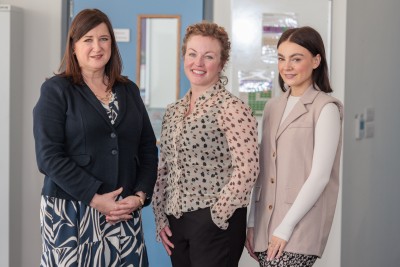
What did we want to achieve?
The importance of age-appropriate care for young people experiencing mental health crises was recognised in the NHS Long Term Plan. Where needs are complex or severe, tier 4 specialist support may be considered. Whilst inpatient support is appropriate and helpful on some occasions, research reflects potential risks and challenges. The Gateway programme is an approach for multi-agency professionals to provide a consistent evidence-base and recommendations where young people’s moderate to severe mental health difficulties combine with risk factors, including tier 4 admission.
What we did
The team worked with NHS and local authority stakeholders to develop a tool for clinical, social care and education professionals and commissioners, providing a consistent, evidence-based approach to:
- Articulating current presenting difficulties.
- Formulation.
- Safeguarding concerns.
- Actions.
- Legal frameworks.
- Confirmation of actions, contingency planning and timescales.
An SBAR Tool (Situation, Background, Assessment, Recommendations) and multi-agency Gateway meeting model for Cheshire and Merseyside was used to meet needs of young people with moderate to severe mental health difficulties or elevated risk of self-harm and suicide with:
- Risk of admission to or awaiting discharge from tier 4 CAMHS.
- Discharge from paediatric wards delayed.
- Risk of care placement breakdown or custody.
Results
- Since February 2022, all nine local authority places established Gateway meetings.
- During this period, over 100 Gateway meetings reviewed more than 175 SBAR tools via multi-agency discussion. This reduced the requirement for escalation beyond local teams at a Place level. Unmet needs of children and young people are being addressed via discussion at Gateway. Connections between this activity and reduction in avoidable admissions are being explored.
- Gateway webpages were launched in 2022 to share learning across teams and organisations.
Next steps
- Gateway stakeholder focus groups to co-produce an evaluation, reviewing:
- Outcomes for young people and their needs.
- Avoidable admissions and length of stay within tier 4, A&E presentations and paediatric ward bed days.
- Stakeholder relationships and use of resources.
Team: Central Cheshire CAMHS
Contact: nicola.
What did we want to achieve?
Denize Whiston, Team Coordinator for CWP’s Central Cheshire 0-18 Child and Adolescent Mental Health Services (CAMHS), recognised the enthusiasm of the CAMHS team to improve waiting times for children, young people and their families waiting for partnership (follow up clinical interventions) within the team, and led the project.
What we did
Denize established interest and commitment from four other enthusiastic and committed staff members and set up an evening clinic running from 4pm to 8pm for 16 weeks from September to December 2022. Denize led by example by joining the team to complete follow up interventions with young people. Staff completed additional hours to take part in the project and their commitment and enthusiasm should be commended.
Results
- Waiting times for partnership interventions prior to the project (August 22) were up to 28 weeks, with 80 young people waiting for a clinical intervention.
- As of January 2023, waiting times for the Vale Royal 0-18 CAMHS team were up to eight weeks, with 28 young people waiting for a clinical intervention.
- The project feeds into the Children, Young People and Families care group quality initiative: ‘Waiting Times and Outcomes Project Group’.
Next steps
This project highlighted the benefit of the Cheshire 0-18 CAMHS team capabilities for cross-team working and is now being replicated with a current project for West Cheshire CAMHS service, targeting assessment waiting times, which is being supported by East Cheshire and Vale Royal 0-18 CAMHS staff, who are currently completing evening and weekend assessment appointments to improve waiting times.
Team: Early Years Lead Starting Well 0 – 19 Service
Contact: robyn.
What did we want to achieve?
The team wanted to ensure all early years workers were trained in accredited Elklan Level 3 award in speech and language support for 0-3s. This would ensure the early years workers were providing consistent messages and support to families through early intervention programmes, using an evidence-based approach. Elklan provides a practical structure for both practitioners and parents, giving them the confidence and materials to support the children in their lives – and to enjoy seeing them progress.
What we did
The early years workers accessed four days of training in July 2022, which was led by a member of Cheshire West and Chester Early Years Consultancy team. Following this, online learning logs were completed, which provided opportunities to embed learning within day-to-day practice, working with children and families and putting the strategies they had learned into practice to support children and families.
Results
Since completing the training in October, the early years workers have continued to provide targeted interventions through a mixture of play-based activities, both in family homes and children’s centre settings. Feedback from staff has shown they have utilised and embedded many of the strategies they have learned to get families to think about how they communicate and play with their children. From August to September 2022, families who accessed groups and targeted interventions in the home facilitated by the early years workers reported a 100% increase in their knowledge and understanding of how to support their child’s development.
Feedback from parents included:
- “The early years worker has given me new ideas for activities at home to support my child’s development.”
- “I have seen such an improvement in my child’s language and communication skills.”
Next steps
The next steps will be to work with the facilitator of the training to maximise opportunities to formalise the strategies which the early years workers find the most useful and tracking the impact these have on children’s learning and parenting outcomes. It is hoped that some of these strategies will be further embedded within the children’s centre environments and the learning journeys created around children and their families.
Team: Care navigators embedded within 0-18 Wirral CAMHS
Contact: kelli.macpherson@nhs.net
What did we want to achieve?
A non-clinical team embedded within 0-18 Wirral CAMHS, which enables children and families to navigate the people, problems and systems around them.
What we did
In August 2022, the care navigator team began building relationships in the voluntary, community, health and social care space. With participation and engagement at its core, so far they have:
- Included young people in the interview process.
- Co-created age-appropriate leaflets to explain the offer.
- Introduced QR coded information for community spaces.
- Provided pen pictures of each navigator to share before contact.
- Met families where they are, whether that be within their home, at a community group, at school or even on a walk.
Results
Since 3 October 2022, the team has:
- Offered support to over 220 children and their family.
- Bridged access to community-based support across more than 50 services.
- Facilitated earlier help between multi-disciplinary teams.
- Improved access to CAMHS as a single point of contact.
- Monthly contribution to local communities of practice meetings, Collective Youth Voice meetings, participation and engagement networks and the clinical commissioning steering group.
- Monthly contribution to nationwide ‘INSPYRE’ project with Anna Freud, StreetGames and the University of Central London.
I would like to thank my care navigator for all the support she has provided. She is super knowledgeable, friendly, compassionate and has been a strength of support in finding services, signposting and contacting organisations, which also decreased the responsibility from me.” – CAMHS clinician
“(Mum) is so pleased with your approach to (child). She was expecting it to be really difficult to engage him with another professional but was amazed he sat with you and played the games. She credited you for working hard to engage him and also explaining the coming process for the 0-18 team really well so she knows what to expect.” - Parent
Next steps
- Evaluate the offer with the Clinical Commissioning Steering Group.
- Develop an online family resilience framework with Merseyside Youth Association, Family Toolbox Alliance and Wirral families.
- Contribute to INSPYRE’s Communities of Practice as a lead example of social prescribing for children accessing mental health services.
Team: Wirral Mental Health Support Team
Contact: beth.

What did we want to achieve?
Mental Health Support Teams (MHST) work in school settings to promote and protect children’s emotional health and wellbeing. One aspect of this is to support schools embed a whole school approach (WSA) to mental health. Wirral MHST wanted to explore whether a novel, coproduced peer support wellbeing programme in primary schools positively impacted on pupil wellbeing and the whole school attitude to emotional wellbeing. Traditional peer support was not deemed developmentally appropriate for primary children, so the focus for this project was to develop a preventative, strengths-based approach. The positive outcome hoped for was improved wellbeing for children on an individual and whole school level.
What we did
The wellbeing ambassador project began with a period of coproduction, facilitated by the MHST in collaboration with pupils and school staff. Wellbeing ambassadors (WAs) were the primary school children who wanted to be involved in the project with training provided by MHST, followed by regular meetings between school staff and WAs to decide what the project would look like in this school. Following implementation, the impact of the project on the wellbeing of participating children was measured, as well the impact on the whole school wellbeing as perceived by the WAs and staff through focus groups in one specific primary school.
Results
Staff and WAs commented on the positive impact of the project on WAs as well as the wider school environment. The project has led to mental health and wellbeing being firmly embedded in the ethos of the school, which research suggests leads to better outcomes for children. Benefits of coproduction and participation found in previous research are reflected in this research, with WAs expressing a strong sense of ownership they felt for the project, pride for being a WA as well as the ability to shape what life in their school should look and feel like. The school continue the project, indicating the value placed on this project by staff and pupils who took part.
Next steps
The project will be extended into seven schools to establish the impact on a larger scale. Being dedicated to continuous improvement, adaptations have been made for children with additional needs. This project teaches children what wellbeing is, what contributes to wellbeing and what can help in improving their own and others’ wellbeing. The positive change in school ethos towards wellbeing will have a wider impact on other children’s emotional health.
Team: Macclesfield CAMHS
Contact: jane.edwards21@nhs.net
What did we want to achieve?
The Participation Lead for the CAMHS teams in Macclesfield wanted to give children, young people and their families an overview of the staff at CAMHS using a video to a song that would promote mental health and wellbeing. The aim is to support children and young people when they attend CAMHS to feel more comfortable and welcome.
What we did
The Clinical Support Worker asked staff to sing to ‘Live Your Story’ by Auliʻi Cravalho from the Disney film Moana. Staff from all the CAMHS took part and used props. Some staff gave pictures of how they live their story that can be seen at the end of the video.
Results
Once the video was completed, it was shared with staff across the different CWP CAMHS teams. The response from staff was extremely positive. The video is also available for young people to watch on the MyMind website. As well as the video, all CAMHS team members’ one-page profiles are in the reception area at Elm House.
Next steps
The team will continue to keep up-to-date staff profiles. It is hoped that once the CAMHS ‘Listen Up’ participation and engagement group is running, the young people will participate in creating another video with a new song.
Team: Next Step team
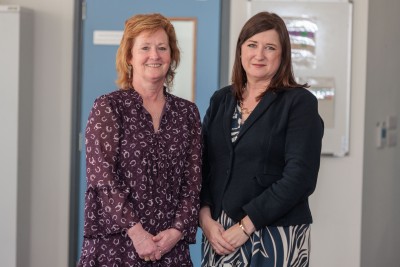
Contact: jenny.horner@nhs.net
What did we want to achieve?
The team wanted to train people who care for children and young people to use the Next Step goal based outcome resource. The programme consists of a set of 52 unique cards, with each card representing a particular mood, thought, action or goal. In a one-to-one scenario, Next Step takes the practitioner and a young person on a journey, encouraging them to discuss their thoughts and feelings, and empowering them to set their own goals. The next phase was to deliver training in the use of Next Step cards for 780 practitioners across Cheshire and Merseyside. This training ran alongside the Next Step programme’s usual training of CWP employees and delegates from other areas of the country.
What we did
- From September 2022 to March 2023, the Next Step team facilitated 30 training sessions at different venues across Cheshire and Merseyside in the use of Next Step cards and its online software platform.
- Training was provided by a dedicated team of CWP practitioners from Wirral, Cheshire West and Chester, and Cheshire East. They were all trained in Education CWP’s Train the Trainer package.
- Extensive feedback was received from delegates at every session and this was used to continuously improve the training, amending the training model on a regular basis.
- Trainers completed a reflective learning cycle after each delivery to ensure continuous development and learning.
Results
Feedback from delegates about the training sessions has shown:
- Consistently high satisfaction scores ranging from 93% to 97%.
- 97% of delegates found the training either useful or very useful.
- 100% of delegates found that the objectives of the training were defined and met.
Comments received from delegates have included:
- “I honestly found this training exceptional and I can see how I will use it straight away.”
- “I enjoyed being able to complete the steps using my own experience. It was excellently explained – I’m excited to get started!”
- “I enjoyed the easy-to-follow steps and the person-centred approach – letting the child guide the process rather than the adult instructing them.”
- “I like the flexibility of the cards to all sorts of different areas of practice. Also great knowing there’s online resources to go back to.”
Next steps
- To raise more funding and extend the training opportunities both within and outside the CWP footprint.
- Enhance the experience of using the online software platform area of the resource.
Team: Early Years Team – Wirral CAMHS
Contact: stephanie.
What did we want to achieve?
- To offer a specialist mental health service to families with under 5s, focusing on early intervention and prevention and addressing intergenerational patterns and traumas through a relational lens.
- Pathways to be co-produced with local families and partnering agencies.
- To work collaboratively with partnering agencies, offering an integrated service and a consistency of care for families, alongside supporting and empowering external colleagues through a joint thinking space.
- CAMHS staff to access appropriate training, allowing a diverse range of relational and attachment interventions
What we did
- The Early Years team connected with stakeholders internally and externally, including families, management, healthcare professionals and local authority, to shape pathways.
- They joined wider initiatives across Cheshire and Merseyside to ensure consistency of best practice.
- Implemented weekly ‘joint thinking space’ (this was initially called ‘consultation’ but it was renamed to sound less medical) for professionals to think about families with under 5s.
- Advice, signposting or a CAMHS assessment is offered.
- Offering several relational interventions already; staff due access training in other evidence-based interventions eg Theraplay.
Results
Qualitative data has shown:
- Coproduction and collaborative nature offers professionals and families a sense of ownership in this development.
- An increase of referrals for under 5s over the last 12 months.
- Upskilling of staff.
“My experience of CAMHS has been really positive.” - Parent
“The registration was easy to complete on behalf of the family and the family has been seen via video and face-to-face within two weeks, which is amazing.” - Health visitor
Next steps
- Continue to next phases – shaping pathways and focusing on interventions offered.
- Continue to co-produce and adapt as required.
- Ensure the team is reaching partnering agencies - recent feedback highlighted a need to make better connections with preschools and education.
- Continue to offer this service within the community.
- Work with other CAMHS services within CWP to understand how to replicate to ensure this as a wider offer.
Team: Autism Spectrum Disorder and Attention Deficit Hyperactivity Disorder (ADHD) Service
Contact: ceri.
What did we want to achieve?
- Raise positive awareness of neurodiversity in the local community and school culture.
- Provide professional development and training for teachers to support neurodiverse young people in their classrooms.
- Create a networking opportunity for NHS professionals, education, voluntary services and council professionals who support neurodiverse children locally.
What we did
The team secured sponsorship from a local business to take part in the project and host an ADHD neurodiversity celebration event in collaboration with a local secondary school - The Macclesfield Academy.
The funding secured accredited continuous professional development training for all staff and a range of age-specific resources for a celebration assembly for pupils. It also facilitated the purchase of multi-coloured umbrellas, which were arranged in a wonderful display at the school.
Invites were sent to all professionals and voluntary sector staff to attend a networking event and afternoon tea – providing an opportunity to share knowledge, understand what is available to support young people, create collaborative connections and facilitate effective interagency support, to improve outcomes for the neurodiverse community we serve.
Invites were also sent to parents to create an opportunity for participation and engagement, understanding of the needs of families and to make parents aware of what support is available and how to access it, as well as obtaining feedback to improve services.
Local press were invited to raise awareness and celebrate neurodiversity with the wider local community.
Results
- Improved interagency working and collaboration, facilitating a better understanding of the roles of professionals and the local services available to support neurodiverse young people and their families.
- Promoting a positive neurodiversity culture within the school and local community.
- Educating teachers and staff to improve outcomes for neurodiverse children locally.
- Parents feel more informed of the services available to support their children and feel able to access them effectively.
Next steps
The team would like to make this an annual event to maintain and build on the success and achievements of the event.
Team: Baby in Mind team
Contact: tammy.
What did we want to achieve?
The Baby in Mind team supports families who may be struggling with bonding and attachment, from the antenatal period through to two years, via a range of specialist interventions carried out within the home, such as video interaction guidance. The team also supports families to confidently access children’s centre services and supports the wider team with providing specialist knowledge around bonding and attachment.
What we did
- Completed Talking Therapies introduction to psychological therapies for 0-2s and gained an accreditation in video interaction guidance.
- Completed level two counselling.
- Established the Baby in Mind team which includes pathways, referral forms and routine outcome measures.
Results
Feedback from clients has included:
“The video interaction guidance has shown me my strengths, built my confidence and lifted my mood. It’s highlighted what I do well and has shown me what a good job I’ve done with my baby.”
“I feel more confident with communicating with my baby and understanding what she wants and needs. I feel my bond has really grown with her and I’m seeing clearly when we are connected and recognising how much I have achieved.”
“I’ve really enjoyed the service. It’s really helped me recognise the bond with baby and be able to enjoy motherhood.”
“Overall, it has really helped me and my baby with our bond since she came home. A huge thank you to the team for all their hard work as it has really supported our family though a tough time into parenthood and broke down some big barriers with our very independent baby!”
Next steps
- The team is now operating service wide and is looking to hopefully expand over the next 12 months, with the aim of supporting more families.
- The Baby in Mind team continues to link with other specialist services such as the Specialist Perinatal Mental Health Service to ensure joined-up working and streamline access into the service.
- Knowledge around bonding and attachment will be shared within team meetings, providing learning opportunities for the wider Starting Well team.
- Continue to use course materials, such as formulations to enhance client assessment for a more holistic approach.
Team: Starting Well 0–19 Service team
Contact: robyn.
What did we want to achieve?
BookTrust launched their early years gifting offer in July 2022. The aim of the offer is to prioritise reaching children from economically disadvantaged and vulnerable family backgrounds who face the greatest barriers. The packs contain age-appropriate books and advice for families on how they can share these with their children as part of their routine within the home and the impact this can have on their child’s early years. Starting Well 0-19 Service has a well-established relationship with the local Bookstart Co-ordinator, which meant that a new pathway could easily be established to maximise on the contact that Starting Well has with all families, but particularly with those who are vulnerable and disadvantaged.
What we did
A gifting pathway was developed to ensure that the new toddler and preschool Bookstart packs were gifted within existing contacts that Starting Well have with families. Reporting systems were used to target gifting of the toddler pack within the one-year development check for families living in a deprived area based on the indices of multiple deprivation. In addition, the preschool pack is gifted to all children eligible for two-year funding who are invited to meet their early years worker at their local children’s centre. Early years workers also visit local early years providers to run sessions with these families to continue sharing the benefits of sharing stories as part of their everyday routine.
Results
Since launching this pathway, we have gifted preschool packs to the following cohorts of families:
- One-to-two year pack gifted to children having a one-year review with Starting Well living in top super output area:
August to September 2022 – 118. October - December 2022 – 253.
- Three-to-four year pack gifted to children attending an appointment with Starting Well to receive their two-year funding entitlement:
August to September 2022 - 191. October – December 2022 – 212.
- In addition, there have been 193 additional contacts with children through the sessions run with parents around the importance of sharing stories in the home.
- Starting Well 0–19 Service team was visited by the research team from BookTrust and were commended on the pathway that has been developed between them and the local Bookstart co-ordinator. This is now being shared with other local authorities as ‘gold standard’ practice to help them shape their own pathways.
Next steps
During 2023, the Starting Well team will continue to deliver sessions with local early years providers to families, which now forms the school readiness offer and makes use of the storyteller packs, which were part of the new early years offer. The team will also continue to gather feedback from families with regards to the quality and impact of the packs on frequency of reading within homes in Cheshire West and Chester, where the packs are being gifted.
Honorable mentions
With nearly 100 entries received for the Big Book of Best Practice 2022-23, we have unfortunately been unable to include every entry in the final book. However, many of the projects – despite not being selected for full publication – deserve to be celebrated for the fantastic outcomes achieved.
You can view the honorable mentions for the children, young people and families care group below:
- Coral Ward Blue Team - Using Microsoft Teams to facilitate better communication between the mini-team nurses
- Mental Health Support Team, Ellesmere Port - Healthy Relationships
- Cheshire ADHD and Autism Team - Autistic Young People helping with NHS Interviews
